#The Boston Globe Magazine
Photo

The Top 5 Longreads of the Week
Today we are featuring stories about the decimation of a national park, the survival of Texas Monthly magazine, how a couple escaped slavery in Boston, choosing when to die, and the future of jelly. 1. In a Famed Kenyan Game Park, the Animals Are Giving Up Georgina Gustin | Undark | January 4, 2023 | […]
https://longreads.com/2023/01/20/the-top-5-longreads-of-the-week-449/
#Top 5#Amboseli National Park#Bettina Makalintal#Boston#Dignitas#Eater#Georgina Gustin#Ilyon Woo#jelly#Kenya#Robin Williamson#Stephen Harrigan#Texas Montly#The Audacity#The Boston Globe Magazine#Undark#Longreads
0 notes
Photo
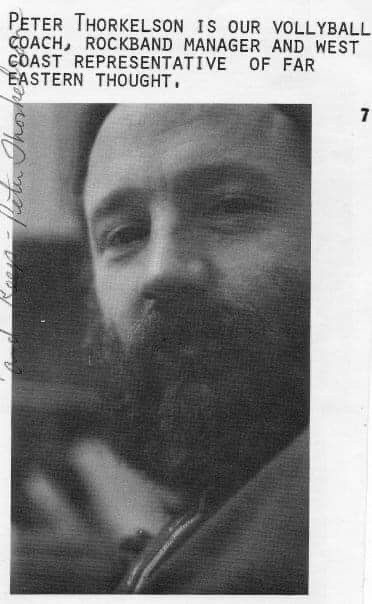
Photo via Pinterest. (While I'm not sure, I'm guessing this might be from Pacific Hills School.)
“Since September he has been teaching English, math, drama, Eastern philosophy and ‘Rock Band Class’ at Pacific Hills, a private secondary school in Santa Monica, Calif. A college dropout, Peter got the job on the strength of his interview with Dr. Penrod Moss, the school’s director. ‘I like to hire people who are independent and creative,’ Moss said. ‘I was impressed by his personality and his ability to speak.’ […] While Tork the musician still has dreams of one day returning to the rock circuit, Thorkelson the teacher is happily planning his next course, ‘Mao, Marx and Mama.’ ‘I’m doing something important,’ he says. ‘I never do anything less than important.’” - People magazine, April 5, 1976
“[Peter] landed a job teaching English, philosophy, drama, math, and a ‘rock band class’ in a private school in nearby Santa Monica in September of 1975. ‘I had no experience, no credentials. Some of the same qualities that got me the Monkees job got me the teaching job,’ Thorkelson said. His abilities to talk and to get along with people are his strongest assets, he added.” - The Bowling Green News, May 24, 1979
"[A]lso, you have to remember that, in this society, teaching is not regarded as a very important pastime by those people in charge of setting budgets and national priorities and that kind of thing. Because if it were, they’d be paid a vastly greater amount of money than they are. Not, you know, double doesn’t begin to get it. Triple, quadruple, that kind of thing maybe. And the fact that teachers are paid as poorly as they are indicates what the priorities are. Nurses make what garbage men make, that kind of thing. It’s not a, you know, it speaks… well… ill, it speaks very poorly and very loudly about our priorities. That’s not my business in the large sense, all I can do is play the games as they are laid out before me. And having some modest influence in the style with which I play them. That seems to be about it.” - Peter Tork, KTRU, August 28, 1983 (x)
“I taught English and social studies. And sure, the kids probably saw me as a Monkee, but they got over that in a hurry. Once I lost my temper at the kids, they’d see I was just like all the others — and I probably lost my temper too many times, since I was in an angry state back then. I have a life now, that’s the difference. I have a spiritual core. I’m not Shirley MacLaine but I believe in greater or lesser worlds and consciousness. Most people think of themselves as cut off from each other; others know there’s a connectedness that can be tapped into.” - Peter Tork, The Boston Globe, August 10, 1989 (x)
More about Peter teaching in older posts, filed under Tork teaching.
There's a New Dimensions High School Alumni public group on Facebook, and in 2019, various alumni recalled their memories of Peter:
- "We were lucky to have known him." - Joanie C. H., February 21, 2019
- "Was a wonderful guy and we [were] lucky to have known him." - Alison R., February 21, 2019
- "I was one of the luckiest student[s] the year [Peter] taught music. Peter, let me rock the violin for the graduation ceremony." - Mark L., February 21, 2019
- Another alumni, Ron M., posted a signed note from Peter, reading: "To Ron don't forget what I taught you best of luck Peter Tork ('Mr. Thorkelson' to you)"
And, on a 2018 blog post at the Monkees Live Almanac, one former student, Mark, commented: “Best high school teacher I ever had […]. Tremendous empathy.” (x)
#Peter Tork#Tork quotes#Tork teaching#70s Tork#long read#<3#also always so much respect for Peter's unflinching honesty in interviews#1976#The Boston Globe#KTRU Radio#The Bowling Green News#People Magazine#can you queue it
17 notes
·
View notes
Photo



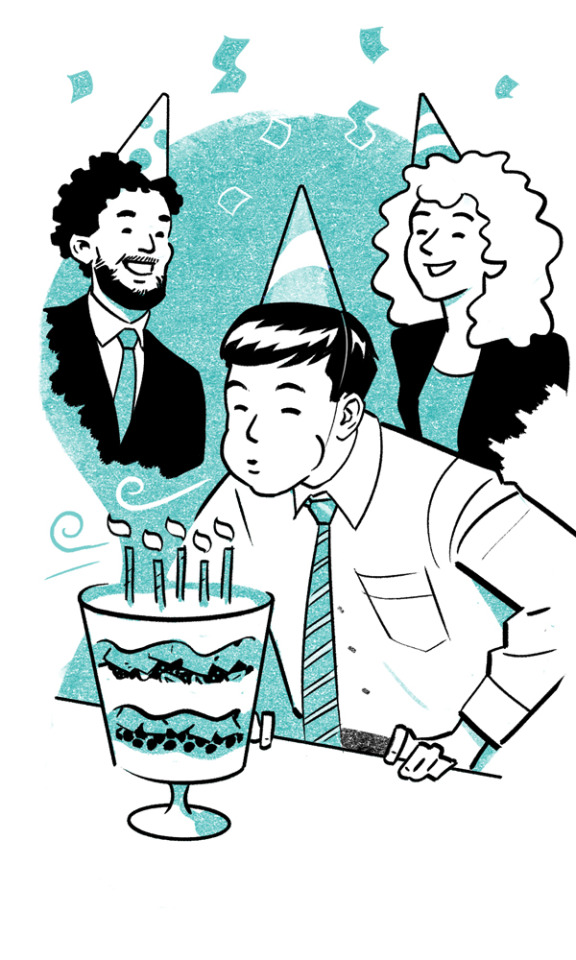

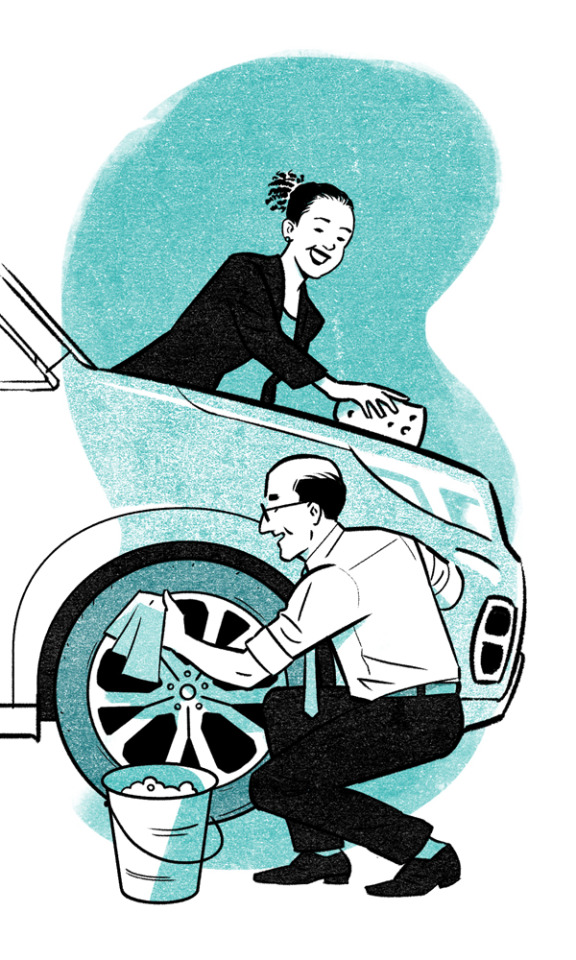
Spot illustrations for the Boston Globe from 2021 about workplace benefits.
On the site here. And on the Boston Globe here.
AD: Greg Klee
web | insta | twitter
#Jori Bolton#boston globe#editorial#illustration#spot#monocolor#monotone#one color#teal#art#lineart#photoshop#digital art#magazine#piggy bank#beach#swimsuit#birthday
5 notes
·
View notes
Text
My Big Boston Globe Debut (thanks to my baffling, bougie kids!)
ICYMI ... after only a few decades of writing I (finally!) gained some street cred! Keep. On. Swimming!
DISCLAIMER: This entire piece is reprinted/copied & pasted from the Boston Globe, where it appeared online on May 28, 2024 and in print on June 2, 2024
(see for yourself!)
https://www.bostonglobe.com/2024/05/28/magazine/when-did-my-kids-get-so-bougie/
I roll my eyes a lot with my grown children. I wish I didn’t. Lord knows I was also wildly winging life in my 20s and 30s, but something’s…

View On WordPress
#eyerollingmom#adult children#adult kids#Boston Globe#Boston Globe Magazine#Eyerollingmom#Family#funny#Humor#Kids#motherhood#Perspective#Tina Drakakis
0 notes
Text
Found the article from the Globe Magazine if anyone else is interested in reading it!
Unpaywalled link here: https://archive.ph/Fl7cT !
643 notes
·
View notes
Text
I am once again so disappointed with the leftist demonazis constantly spewing nonsensical drivel every time they don't like someone elses opinion. Demonazis are so far to the left that they agree with and use the propaganda tools of the two worst extreme right ass holes that ever walked the earth. Hitler and Stalin both treated their own people with such disrespect and callousness that they created concentration camps and gulags to silence any opposition to their rule.
The following information comes from the holocaust encyclopedia. I wrote comments that are not after bullet points.
• The Nazis were skilled propagandists who used sophisticated advertising techniques and the most current technology of the time to spread their messages.
Think of CNN, MSNBC, NPR, ABC, CBS, NBC, all other "news outlets" for example the New York times, Boston globe, and Washington post are but a few. They don't report the news but continuously give us their opinions on everything. The 5ws are desperately needed to stop their propaganda. We can include the woke organizations like Disney and Hollywood movie makers for spreading propaganda for the demonazis.
• Once in power, Adolf Hitler created a Ministry of Public Enlightenment and Propaganda to shape German public opinion behavior.
▪︎Nazi propaganda played an integral role in advancing the persecution and ultimately the destruction of Europe’s Jews and all political Dissidents. It incited hatred and fostered a climate of indifference to their fate.
Think of how the demonazis allowed the likes of BLM and ANTIFA to destroy many cities. No action was taken by those in power to stop the destruction or prosecute the perpetrators. Then remember the hissy fit they had when they allowed, yes demonazis allowed, Republican protester into the capital. The demonazis prosecuted 100s of peaceful republican protesters. If the republican protesters were acting like BLM and ANTIFA the Capitol would be a smoking ruin.
• The Nazis wanted Germans to support the Nazi dictatorship and believe in Nazi ideas. To accomplish this goal, they tried to control forms of communication through censorship and propaganda. This included control of newspapers, magazines, books, art, theater, music, movies, and radio.
• When the Nazis came to power in 1933, the German constitution guaranteed freedom of speech and freedom of the press. Through decrees and laws, the Nazis abolished these civil rights and destroyed German democracy. Starting in 1934, it was illegal to criticize the Nazi government. Even telling a joke about Hitler was considered treachery. People in Nazi Germany could not say or write whatever they wanted.
Examples of censorship under the Nazis included:
• Closing down or taking over anti-Nazi newspapers;
• Controlling what news appeared in newspapers, on the radio, and in newsreels;
• Banning and burning books that the Nazis categorized as un-German.
• Textbooks are a good example of how propaganda and censorship worked together in the Nazi regime. The Nazis used both propaganda and censorship to control what students read in school. Nazi censors removed some textbooks from classrooms. New textbooks taught students to obey the Nazi Party, love Hitler, and hate Jews.
The demonazis took over education with the creation of the Department of education in 1979.
The Higher Education Act of 1965 introduced federal student aid and loan programs. These give away programs allowed higher education to run amuk with ever increasing cost of degrees. This needs to stop now.
Demonazis try to stop the political middle and right from voicing their opinions by controlling who can and can't post on many social media sight. Censorship at it worst. Thank God Elon Musk bought out Twitter and turned it into X. No more censorship there. Of course the demonazis scream foul.
We The People who love the United States of America must stand by her in her hour of desperate need. If we don't our great country is doomed. I know this is a long winded post but I felt it was necessary to explain how dangerous the deep state and New World Order are. This is why I call the democrats demonazis as the word fits perfectly.
Thank you for reading this post. If you like my post please repost it and start calling the democrats exactly what they are, demonazis.

#democrats#republicans#war is real#i stand with israel#donald trump#joe biden#kamala harris#veterans#highereducation#deep state#conservatives#military#history#historical#politics#truth#higher education#congress#church#new world order#stop the insanity#united we stand#divided we fall
52 notes
·
View notes
Text
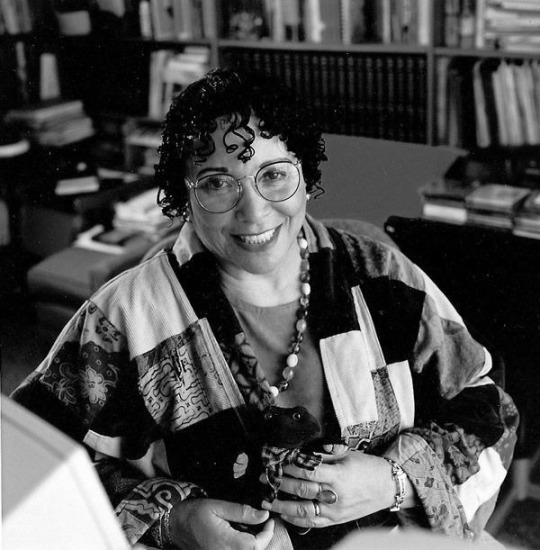
Today In History
Virginia Hamilton changed children’s literature for generations of readers, bringing a Faulknerian style of sophisticated and cutting-edge writing to the world of books for young readers. Hamilton was awarded the Newbery Medal, three Newbery Honors, the National Book Award, the Boston Globe-Horn Book Award, the Hans Christian Andersen Medal, and many more.
Readers will be enlightened by Hamilton’s engaging, powerful, and witty perspective on African American literature as well as her own experiences as a writer and an American. an award-winning author of children books including “House of Dies Drear,” “M.C. Higgins the Great,” and “Sweet Whispers, Brother Rush.”
She was born in Yellow Springs, OH, on this date March 12, 1936.
CARTER™️ Magazine
#Virginia Hamilton#carter magazine#historyandhiphop365#wherehistoryandhiphopmeet#history#cartermagazine#carter#today in history#staywoke#blackhistory#blackhistorymonth
41 notes
·
View notes
Text
Rosalind Russell - The Miracle Woman
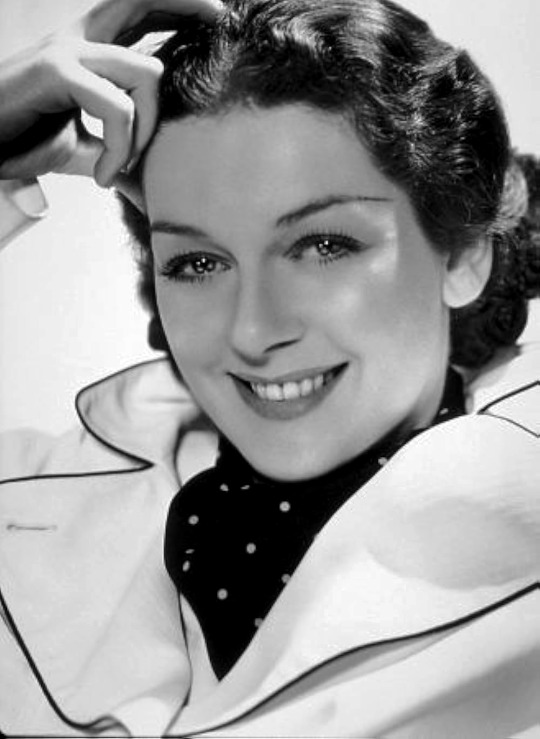

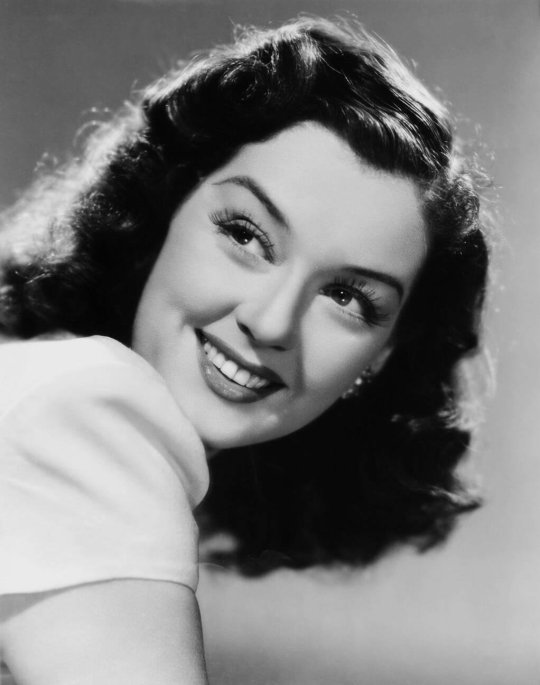


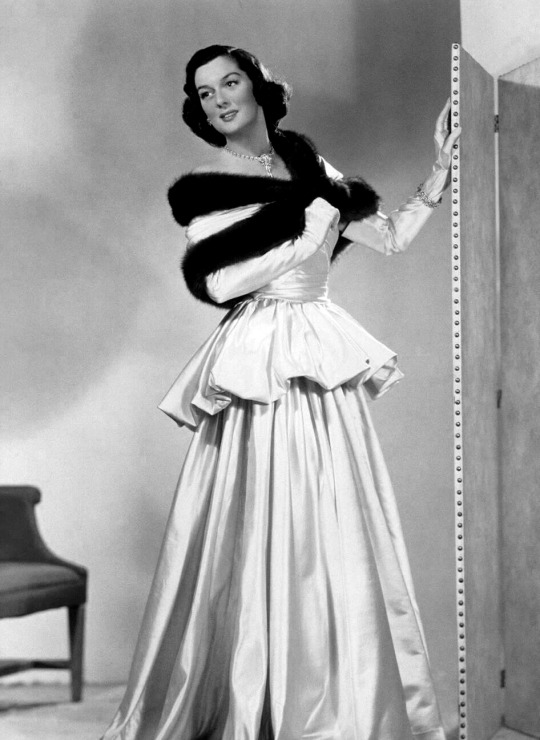

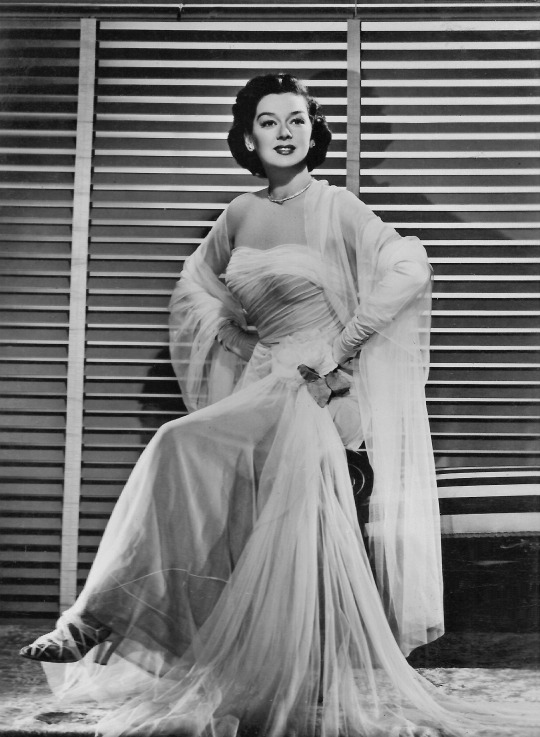




Catherine Rosalind Russell (born in Waterbury, Connecticut on June 4, 1907) was an American actress known for playing sassy, wisecracking women in 1930s and '40s comedies. Despite going through postpartum depression, the deaths of her siblings, breast cancer, and rheumatoid arthritis, she thrived as a charismatic actress on film and the stage, earning the nickname "The Miracle Woman.”
Raised in a strict Irish-American, Catholic family. She attended Rosemont College and Marymount College, before graduating from the American Academy of Dramatic Arts in New York City, unbeknownst to her parents who believed she was studying to be a speech teacher.
Against parental objections, she began her career as a fashion model and took acting jobs in upstate New York, Connecticut, and Boston before eventually appearing in Broadway.
In 1933, Russell went to Los Angeles, where she was hired as a contract player for Universal Studios but did not appear in a movie. Unhappy at Universal, she moved to Metro-Goldwyn-Mayer, where she broke through in the classic screwball comedy His Girl Friday (1940), directed by Howard Hawks.
She took a break after giving birth from her career, but made a comeback with RKO Pictures and then with Columbia Pictures. She continued to appear in critically acclaimed movies and Broadway shows through the mid-1960s, including the title role of the long-running stage comedy Auntie Mame (based on a Patrick Dennis novel) as well as the 1958 film version.
After years of battling breast cancer and even getting a double mastectomy, she died at her home in Beverly Hills, California at 69 years of age. Months after her death, she was honored by her acting colleagues with the “Interlude With Rosalind Russell” at the Shubert Theater in Broadway.
Legacy:
Nominated four times for the Academy Award for Best Actress for her performances in My Sister Eileen (1942), Sister Kenny (1946), Mourning Becomes Electra (1947), and Auntie Mame (1958)
Won all five of her Golden Globe Award for Best Actress nominations: Sister Kenny (1946), Mourning Becomes Electra (1947), Auntie Mame (1958), A Majority of One (1961), and Gypsy (1962)
Won the 1953 Tony Award for Best Actress in a Musical for Wonderful Town and was nominated for the 1957 for Best Actress in a Play for Auntie Mame
Nominated for the 1959 BAFTA Award for Best Foreign Actress
Won the Golden Apple Award in 1942 for Most Cooperative Actress
Awarded the Look Magazine Award for Film Achievement Award in 1947
Covered Time magazine in 1953
Was the namesake of the Rosalind Russell State Theater in her hometown in 1955
Wrote the story for the film The Unguarded Moment (1956) and adapted the novel, The Unexpected Mrs. Pollifax, into the screenplay for Mrs. Pollifax-Spy in 1971, under the pen name C.A. McKnight
Won the Golden Laurel for Top Female Comedy Performance for Auntie Mame (1958) and was nominated five more times
Presented with a medallion by the National Conference of Christians and Jews in 1962
Honored for her distinguished service by the UCLA in 1964
Named the Woman of the Year by Hasty Pudding Theatricals, a student society at Harvard University, in 1964
Is the recipient of the Floyd B. Odlum Award by the Arthritis Foundation in 1971
Appointed by Congress to serve on the National Commission on Arthritis and Related Musculoskeletal Diseases during the 1970s
Received the Golden Plate Award of the American Academy of Achievement in 1972
Appeared in John Springer's "Legendary Ladies" series at The Town Hall in 1973
Awarded the Jean Hersholt Humanitarian Award in 1973 by the Academy for her extensive charity work
Presented her with the National Artist Award in 1974 by the American National Theater and Academy
Awarded the Life Achievement Award in 1975 by the Screen Actors Guild Awards
Hosted by First Lady Betty Ford at the White House in 1976
Honored with the Rosalind Russell Week in 1977 by Los Angeles Mayor Tom Bradley
Co-authored her autobiography, Life Is a Banquet, in 1977
Is the namesake of the Rosalind Russell Medical Research Center for Arthritis at the University of California, San Francisco, created by a Congress grant in 1979
Inducted into the Connecticut Women's Hall of Fame in 2005
Ranked #28 on Premiere magazine's 100 Greatest Performances of All Time in 2006 for His Girl Friday (1940)
Honored as Turner Classic Movies Star of the Month for July 2008
Inducted in the Online Film and Television Association Film Hall of Fame in 2014
Was the subject of a 2016 exhibit at the Mattatuck Museum in her hometown
Honored by the Berlin Film Festival‘s 27-movie tribute in 2022
Has a star on the Hollywood Walk of Fame in the 1700 block of Vine Street for motion picture

#Rosalind Russell#The Miracle Woman#Roz Russell#Auntie Mame#Silent Films#Silent Movies#Silent Era#Silent Film Stars#Golden Age of Hollywood#Classic Hollywood#Film Classics#Classic Films#Old Hollywood#Vintage Hollywood#Hollywood#Movie Star#Hollywood Walk of Fame#Walk of Fame#Movie Legends#Actress#hollywood actresses#hollywood icons#hollywood legend#movie stars#1900s
11 notes
·
View notes
Text
Bruised Fruit Chapter 3 (Michael Corleone x OC)

Summary: An engagement party only sinks Gloria's roots deeper into the Corleone family and gives her a glimpse of what her future may hold.
Note: I plan to have chapter 4 posted next weekend! This fic has been so fun to write, and I appreciate the support on here and AO3 for it🖤
Warnings: Angst, canonical major character death, discussions of infidelity, emotional manipulation. Sexually explicit content which includes masochism.
Do not interact if you are under 18 or post thinspo/ED content. I will block you.
Chapter 2 | AO3 Link | Masterlist

“Looks like Senator Kennedy might run for president next year. They’re saying just because he’s Catholic, he’d probably lose the primaries in the South,” Gloria said, scanning the copy of the Boston Globe that room service had brought up with breakfast, along with that day’s editions of the New York Times, Washington Post, and Los Angeles Post. “Can you believe that?”
Michael nodded from his spot next to her on the loveseat, using his toast to mop up the yolk from his poached egg. “I can believe it.”
She glanced at the photo of Massachusetts Senator John F. Kennedy printed on the Globe’s article. “He sure is easy on the eyes. Almost got my vote already.”
“Would you really vote for a candidate just because you thought he was attractive?”
Gloria shielded her face behind the newspaper, hiding her grin. “It sure helps. You’d win by a landslide.” She started giggling when she heard him scoff.
She knew the Senate hearings were still a sore spot for him, his family business being speculated about on the national stage. Throughout the hearings, she’d naturally kept an eye on the papers, amused by the various asides about Michael’s appearance. Intimidating, they called him, a powerful presence who commanded the attention of the room. She especially liked the article in a gossip magazine she indulged in that described him as handsome in a dark and dangerous way that almost inspires something primal in a woman.
“You’re funny.”
“I’m not allowed to give you a compliment?”
He acquiesced with the slightest smile on his face. “Thank you.”
She gave him a kiss on the cheek. “You’re welcome,” she said as she flipped to the next page of the article. “My mom’s already chomping at the bit to volunteer for his campaign.”
Gloria’s mother, Julia, was especially active in the Queens branch of the New York Democratic Party, volunteering for every one of Franklin Roosevelt’s presidential campaigns. Gloria could remember canvassing with her mother during election years. After he was elected president a third time, Julia received a thank you letter in the mail from Eleanor Roosevelt. She had the letter framed, and as far as Gloria knew, it was still displayed in the living room of her childhood home.
“Have you heard from your parents about the engagement party?”
“They’re not coming. Dad can’t take the time off of work,” Gloria said.
When he had told her such, she knew it wasn’t entirely true, but she wasn’t about to tell Michael that she could hear her father pour himself a drink over the phone when she informed him that she would be marrying a gangster.
He nodded. “I’m sorry to hear that. I’d like to speak with your father soon.”
Gloria hummed noncommittally. “How many people are going to be there?”
“Just family, around thirty or so.”
“Thirty? Michael, you said it was going to be a small gathering.”
He grinned. “In my family it is.” He brushed some of her long black hair from her face. “You’ll know everyone soon enough.”
“Well, I already know your siblings. They’re going to be there, right?”
“Fredo can’t make it.”
“That’s a shame. He introduced us, after all.”
“It can’t be helped,” he said dismissively. “Connie will be there. I know you haven’t seen her in a while.”
Gloria liked all of Michael’s siblings, but she considered Connie a friend. Whenever Connie was in Vegas, which was quite often when she wasn’t jet-setting with her latest beau, Michael would ask Gloria to keep an eye on her. Of course, this would turn into nights of drinking, partying, and watching Connie win or lose astonishing amounts of money in the casino.
“You have nothing to worry about. They’re friendlier than I am,” he said, earning a soft laugh from her.
By the end of the week, she wasn’t so sure, but Michael had been the one who insisted on the engagement party, telling her that his family had never been involved in his wedding preparations in the past. They hadn’t even attended the ceremony. With his mother’s health declining, it was important to him.
If Gloria had been nervous to meet Michael’s children, meeting the rest of his family had her stomach in knots. She poured herself a drink to calm down before the car arrived to pick her up from her hotel. While Anthony and Mary could be shielded from the truth of Michael and Gloria’s relationship by virtue of their youth, she figured the rest of his family already considered her a homewrecker. Not entirely untrue, but she wondered how what tale had been woven prior to her arrival. Undoubtedly something to make her more palatable to his extended family.
As she crossed the threshold of his home for the first time, she felt a different warmth in his house than the kind that engulfed her in her childhood home when she had visited for Thanksgiving a few months prior. That warmth had given way to a love that wrapped around her like a blanket, a love she could dream in. The love that permeated the air in Michael’s home clung to her skin like summer sweat. Nevertheless, she supposed a sweltering love was better than none at all.
Though, when he squeezed her hand, his smile betrayed his fondness for her, and she couldn’t help but smile back. It almost made her wish that they were alone again, but there were introductions to be made. Namely, his mother Carmela, who was clearly being polite to Gloria for Michael’s sake and to set a good example for Anthony and Mary. Michael’s children barely left their grandmother’s side but seemed happy to see Gloria again. Taking the hint, Michael kept the conversation short.
“I have some business to go over with Tom. It won’t take long, but I think my sister’s about to steal you anyway,” Michael said softly, giving Gloria a gentle kiss on her cheek.
As he retreated into his office, Connie rushed over to Gloria.
Connie beamed, pulling her in for a hug. “Gloria! God, how long has it been?”
“Hi, Connie,” she said, returning her future sister-in-law’s embrace. “It’s great to see you again.”
“Congratulations! Now let me see that ring!”
Gloria moved back, holding out her hand so Connie could inspect the engagement ring Michael gave her. The night had been quiet, unceremonious if not for his presenting her with the ring, beautiful yet understated. After he slid it onto her finger, her hand burned, and she thought she was having some kind of allergic reaction to the metal until she noticed no redness or hives on her skin—psychosomatic, merely branded in her mind’s eye.
“Gorgeous, oh my god,” Connie gasped. “It suits you.”
Before Gloria could say anything more to Connie, a gaggle of younger relatives walked over to introduce themselves. All nieces and nephews, some older with their spouses and fiances of their own. Despite Connie reminding Gloria who was who, she felt her head spin at the amount of new names and faces she would be expected to know. It didn’t help that Michael’s late brother Sonny had twin girls, who were the spitting image of their mother, Sandra. While both of Gloria’s parents had a handful of siblings themselves, her extended family wasn’t nearly as close-knit as the Corleones were.
The line between business and family was almost nonexistent for them. Each son fated to take up some role in the volatile business, a Greek tragedy enacted by mostly Sicilian players–Sonny, the eldest son, dead by enemies taking advantage of his anger and hubris; Tom, the adopted son, a trusted advisor, though his heritage always left him the outsider; Fredo, the forgotten son, good-natured yet quietly resentful; Michael, the youngest son, who tried to escape his destiny but was instead doomed by a narrative greater than himself and even further corrupted by it. The chorus raged on with its warnings of the ruthless pursuit of power ignored, and Gloria shuddered to think what lay ahead for Anthony and the son Michael wanted her to carry.
Going forward, her life would be nothing short of a whirlwind of people. She wondered how Michael’s children could stand it, how he could stand it. For a family so guarded and secretive, they didn’t have much privacy. Everyone knew everything about each other. Corleone family associates filtered in and out of his house day and night.
“Why don’t you all give the woman a break so she can get something to eat?” Sandra finally said, putting her arm around Gloria’s shoulders and leading her into the kitchen.
“Thank you. I couldn’t eat before I got here. My nerves were all over the place,” Gloria said, taking a plate and helping herself to the antipasto that was set out on the table. She popped a few olives in her mouth as she piled the various meats and cheeses onto her plate.
Sandra stood next to her, taking a slice of prosciutto for herself. “No, I understand. We’re insular, guess it’s just easier that way.”
Gloria silently wondered how easy it really could be. Sandra had been a widow for at least a decade, with Sonny having been brutally murdered on the Long Beach causeway during the Corleones’ war with rival families. The details were all over the papers at the time, but none showed the photos of Sonny’s body, apparently too gruesome to be printed as he was riddled with bullets to the point where he was nearly unrecognizable. Still, Sandra was taken care of, her marriage all but secured that even after her husband’s death, an Old World life insurance policy.
“I don’t know what I expected. Everyone seems so…normal,” Gloria said, a blush spreading across her cheeks. “Ah, that’s not the right word. I mean—“
“This thing’s been going on longer than you and me,” Sandra said, gesturing vaguely. “I stopped trying to understand it a long time ago. It’ll drive you crazy.”
“I don’t even bother,” Gloria said through a mouthful of mozzarella. “He keeps me too busy to even think about it, anyway.”
“Oh, I’m sure,” Sandra said, a sly smile on her face that Gloria couldn’t help but snicker in response to. “Believe me honey, I get mine.”
Tom appeared in the doorway of the kitchen. “I’m sorry to interrupt.”
She noticed the look Sandra and Tom shared as he walked over, albeit brief, it was all too familiar. The desire, the longing, the silent promise of later, despite Tom’s wife Theresa being just a room away. Interesting. Gloria had more in common with the Corleone women than she thought.
“Gloria, congratulations,” Tom said, giving her a kiss on the cheek.
“Thank you, Tom. I appreciate it.”
“Could you come with me to Michael’s office? I just need to go over a few things with you.”
Gloria nodded, following him out of the kitchen and through the labyrinth of people in the living room.
As soon as she stepped into Michael’s office, she nearly felt the urge to genuflect before taking a seat next to him on the leather upholstered couch, as if sliding into a pew during mass. His face lit up ever so slightly when he saw her, and he took her hand in his.
“It’s good news, darling. Don’t worry,” Michael said, reading her hesitation.
She gave him a weak smile before bringing her attention to Tom.
“The divorce is almost finalized, but I’ve sent Michael’s petition to the Vatican to have his marriage to Kay annulled,” Tom said. “Between our connections to the Holy See and the severity of what she committed, I don’t anticipate this taking more than two or three months.”
All Gloria could manage in response was a quiet, “Wow.”
Michael smiled, patting Gloria’s hand. The gesture meant to be reassuring, as if Gloria had asked for it, like she was the one who wanted Kay’s sin repaid pound for pound if not in blood, then in excommunication and eternal damnation. Kay’s decision was her own, but Gloria wasn’t without sin, and neither was Michael, yet he was more than willing to have his soon to be ex-wife formally damned. Knowing Michael, the most he believed in was the hierarchy, the institution. God was merely an irritating obstacle at best and outright competition at worst.
The revelation of Kay’s mortal sin to the Vatican would almost guarantee Michael an annulment. With that in place, there’d be nothing to stop them from having a formal wedding mass despite his being divorced from a consummated marriage. An otherwise long and tedious process to convince the Catholic Church to invalidate the eternal, holy bond of matrimony would be taken care of in a matter of months.
“Once that’s all sorted out, the two of you will be able to set a date. Obviously the situation isn’t ideal, but—“
“Thank you, Tom. I appreciate the effort,” Gloria said awkwardly.
He nodded, his tight-lipped smile slightly strained. He lacked the pleasure that his brother had in the situation at hand, but there was little else he could do as consigliere.
“I have one more thing to discuss with Tom, but I’ll join you again soon,” Michael said, walking her over to the door. “Won’t leave you with the sharks too long.”
He kissed the top of her hand before she made her exit. As soon as the door shut behind her, Gloria searched out Connie, who was helping herself to a glass of wine.
“Always business with them, huh?” Connie quipped.
“Something like that,” Gloria said. “Hey, did Michael tell you why Fredo couldn’t make it? You’d think he’d be here. He introduced Michael and me.”
“You know, I’m not sure myself,” Connie said, though her tone wasn’t entirely convincing. “Hard to keep track of everyone. I mean, Francesca and her fiance are god knows where, and Ma just went off to take a walk.”
Gloria sighed. “I don’t think your mother likes me very much.”
“Ma’s old fashioned, is all,” Connie assured her. “She hasn’t liked anyone I married.”
“Gee, thanks, Connie.”
“You know what I mean. Don’t let this keep you from being excited.”
“I’m excited, absolutely,” Gloria said, feeling that anxious was more appropriate. “The relationship feels so different now compared to when me and Michael were just fooling around.”
Connie’s laugh caught the attention of just about everyone within a few feet of them, turning to see what the commotion was about. “Gloria, you know as well as I do that my brother does not fool around,” she whispered.
That much was true. Michael had a sense of humor, it was one of Gloria’s favorite things about him, but even that was guarded, doled out sparingly to a select few. Nothing half-assed or left to chance, he was meticulous and calculated, necessary traits to earn wartime promotions and later lead the Corleone family. She should have realized sooner that his maintaining their relationship for so long would serve a greater purpose.
Conversely, Gloria never considered herself the marrying type, not finding the trappings of domesticity appealing compared to the independence she enjoyed as a single woman. None of her other dalliances ever lasted longer than a few weeks. While she never considered herself quite the party girl that her Las Vegas peers were, she was never one to deny herself pleasure, throwing caution to the wind in pursuit of a good time if she felt so inclined.
Perhaps her appeal as a wife to Michael was two-fold, what she could offer him as potential mother of his child, and an ego boost in conquering her, a woman half-feral whose worldliness coursed through her veins. A much needed triumph after the domestication of his sophisticated New Englandite ex-wife had regressed until she destroyed her cage, blood and iron reflected in her wild green eyes.
She looked at Mary and Anthony, playing with their cousins, seemingly unaware of the significance of the occasion. After the dinner a few weeks prior, Michael said that he had told them Kay had done something very bad, and so she left and wasn’t coming back, and they weren’t to ask him any more questions about it. She wondered if they actually believed him.
“I need some air,” Gloria said abruptly.
She rushed over to the sliding glass door that led outside, shoving a cigarette between her lips as she made her way onto the deck that overlooked Lake Tahoe. Lighting the cigarette with shaky hands, she almost didn’t notice her future mother-in-law standing just a few feet away from her.
“Mrs. Corleone—uh, hi,” Gloria said.
The matriarch was silent, save for a brief nod of acknowledgement.
“How are you liking the party?”
“It’s fine.”
“That’s good. Michael will be glad to hear it.”
Silence once again hung in the air. Gloria brought her cigarette to her lips, watching the smoke rise above them.
“I don’t approve of the way you and Michael conducted your relationship, contributing to his marital strife,” Carmela said, pausing briefly. “Maybe it would have ended up this way without you in the picture.”
Carmela and Kay were close, she knew as much. Connie had told her that the two would often go to Mass together. For all intents and purposes, Carmela had taken Kay under her wing. It made sense, Kay had taken up the mantle previously held by Carmela, and it helped that she was a nice, college-educated woman while still being a devoted wife and mother—until she couldn’t take it anymore. Gloria being Michael’s mistress was enough for her future mother-in-law to have already made up her mind about her.
“I understand.”
“What Kay did was desperate, a horrible thing after her cries for help weren’t heeded by my son.” Carmela side-eyed Gloria. “How often was he preoccupied with you?”
“Whenever he was in Vegas on business,” Gloria answered honestly. “We went to Los Angeles together twice, too.”
“My husband, God rest his soul, always used to tell our sons, ‘A man who doesn’t spend time with his family can never be a real man.’”
It was Gloria’s turn to be silent. She didn’t know the late Don Vito Corleone. Didn’t know whether or not he was a hypocrite. Michael admired him. The whole family spoke fondly of their dearly deceased patriarch. As far as Gloria was concerned, Vito was a myth, a superstition that existed in the whispers of every mafioso, spinning taller tales about their former Don with each passing year. For all she knew, people misquoted him the way they did Abraham Lincoln.
“I’m not going to pretend I haven’t been selfish and made a lot of questionable choices. I’m not exactly sorry for them, either. For some reason, Michael loves me in spite of all of that, and I do love him.”
“That’s all that matters now, isn’t it? The only thing that can keep the family together…what’s left of it, anyway.” She gave Gloria a wistful smile. “Michael looked happy when he walked in with you. I haven’t seen him like that in a long time.”
Gloria took a long drag on her cigarette, knowing Carmela would rather that happiness be with Kay, his wife, rather than with her.
“Am I interrupting something?” Michael asked, startling Gloria a bit. She hadn’t heard him open the glass door to go outside.
“No, I’m going to head back inside now,” his mother said. “Chilly out.”
Michael nodded. “Alright, Ma. Don’t want you to catch a cold.”
Michael and Gloria were silent as the Corleone matriarch made her exit. Gloria leaned against the railing, her back pressing against the hard wood as she took one last inhale of her cigarette before flicking it aside. She watched the ember glow faintly in the wet pile of spring leaves on the ground before going out.
“I didn’t see you inside. Connie told me you needed some air,” Michael said, standing in front of her.
“Just felt a little overwhelmed. So many people,” she said, as if that hadn’t been her job for five years. Except those were all strangers. Every person in that house was related to or worked for Michael, and soon she’d be part of it. “You really didn’t have to do all of this.”
“I wanted to,” he said.
“Like how you want to marry me?” she asked. “The way it all happened, I just—“
“You just what?”
Her attention drifted to her hands, playing with her engagement ring as she withered beneath his intense gaze. “I just wonder if you thought this through.”
“I’ve done the thinking for both of us. I know you’re nervous, darling, but this is what’s best for you,” Michael said, with all the conviction of a man who still believed she was formed of his rib. Silly woman, head full of glittering diamonds, champagne bubbles, and red lipstick. He placed a firm hand over her fidgeting one. “I won’t be as careless as I have been in the past.”
Gloria stared at him for a moment, thinking she liked him better careless, at least more so than the front he put on for everyone, including her. For how important he claimed his family was, there was always distance, if not emotional then physical. At the very least, she closed the few inches between them, kissing him with the ferocity of a woman who was still resisting the trappings of domesticity.
It didn’t matter to him. His hands found her hips as they always did, fingers pressing deep to claim her flesh as his own. His own instinct had momentarily clouded his reason, as he pulled away from her, albeit reluctantly. His eyes were trained on hers, pupils dilated when he finally glanced behind him, as if to make sure his family hadn’t seen this temporary lapse of control from their Don.
And they hadn’t. At least none of them indicated such as the night went on, and they slowly dispersed back to their respective homes on the vast Lake Tahoe compound or in the surrounding city, giving their congratulations and well-wishes to Gloria and Michael.
She was grateful he’d at least arranged for his children to stay over at his mother’s, though she could tell he was growing tired of her insisting they be given time to adjust to Kay’s absence and Gloria’s sudden intrusion into their life. They’d undoubtedly have questions about Gloria staying the night, in their father’s bedroom, no less.
All traces of Kay ever being there were long gone, but Gloria glanced at the bed, Michael’s initials embroidered on the linens, wondering how many nights Kay had lain awake in that very bed, knowing her husband was with her. Maybe it was a relief after a while, seeing as Kay’s tolerance for Michael only dwindled as time went on.
Gloria liked it better when those things were separate, when she could be the other woman without having to think too hard about the implications. But she hadn’t driven Kay away. Michael had. And that same man was dragging her in, his desperation not quite as raw as the night he made his proposal, but still evident, if only to her.
This time, he initiated the kiss, his lips claiming hers, payback for her daring public display of affection earlier. He sunk his teeth into her lower lip, fresh blood blending with the red lipstick she wore, no doubt smeared across her mouth as the traces of it were on his. Though his intensity scared her at times, she found it thrilling, perhaps addicted to the adrenaline that came with riling him up, the one time she felt like she had the upper hand on him.
She kissed his neck, knowing better than to leave a mark, but at least temporarily leaving a streak of crimson in her wake. Reaching between them, she rubbed his cock through his pants, feeling it harden beneath her until his hips just barely bucked.
“Jesus—fuck, Gloria,” he groaned.
She gently protested his attempt to guide her back onto the bed. “Missionary, missionary,” she teased against his lips. “You know I’m the type of woman who likes variety.”
His nostrils flared, eyes widened at her words, and she resisted the urge to smirk until he’d turned her around, forcing her ass-up on the edge of his marital bed. Only in her black satin slip and panties, the latter were quickly discarded. She licked her bruised lip when she heard him unbuckling his belt, the rustling of fabric preceding his hand slipping between her folds, his fingers feeling the slick that already coated her pussy.
She shuddered at the sensation of him rubbing her clit, and as she gripped the comforter she lay on, she silently determined that if she couldn’t get her pleasure from anyone but him going forward, she’d make sure it was on her terms. She loved sex, which was acceptable for mistresses but apparently not for wives, as the act was then relegated for procreation rather than pleasure. She didn’t see why they couldn't have both.
Michael grabbed Gloria’s hips, and she steeled herself as he pushed his cock inside her, his thrusts deep and slow until she growled, “Harder. I’m not gonna break.”
Her nails dug into the soft fabric beneath her, clawing at it as her back arched, cat-like as she took him deeper, his pace unforgiving, her cries of pleasure filling the room. He had jokingly accused her of being a masochist in the past. She never outright denied it.
“Is this what you wanted all night?” he forced out through gritted teeth.
Her moan wasn’t a good enough response, as he slapped her ass, sending a jolt through her.
“Answer me.”
“I always want you.”
“Only me.”
“Only you.”
With that, he came inside of her, and she humped the bed for that extra bit of friction on her clit, feeling her own orgasm achingly close as she felt his seed filling her. Biting her barely healed lip finally sent her over the edge, and she buried her face in the comforter, lifting it a few moments after riding out her orgasm on Michael’s cock to see a stain of blood, spit, and mascara.
She whimpered when he pulled out of her, her pussy still throbbing from her climax. With aching muscles, she crawled up the mattress, leaning against the neatly made pillows. He undressed, his gaze fixed on her he joined her on the bed, pulling her against his chest, still slightly heaving from the exertion.
“What got into you?” he asked, amusement in his eyes.
“Besides you?” she joked before speaking her next words carefully, ever so manipulatively, “I know we’ve been trying for the baby, but can’t it at least be fun?”
He smiled, kissing the crown of her head. “I don’t see why not.”
After that night, she increasingly split her time between the hotel and his house, slowly getting to know his family better. Carmela was still icy to Gloria when she was able to make it over to the house. Those instances became more scarce, until she could only take so many visitors at her home until one evening in late spring, she passed away.
Melancholy swept over the family at the loss of their beloved mother and grandmother. Gloria regretted not having the time to build a better relationship with the woman, but the more selfish part of her lamented that she would be expected to take up the matriarchal mantle so soon, something she neither desired nor felt prepared for.
“You look beautiful, darling,” Michael murmured, helping her clasp the gold necklace her grandmother had given her for her confirmation, the pendant of the Blessed Mother resting just above her collarbone.
They stood in his bedroom, preparing for the funeral mass and wake that were sure to bring in dozens of people to the cemetery and Corleone compound.
She turned around, forehead wrinkled in concern. “This is about you and your family. I’m not sure if I should even be there.”
“Enough of this, Gloria. You’re going to be my wife, that makes you part of this too,” he said. “There are going to be a lot of people here today, some very important. I need you with me. We need to show strength and solidarity right now.”
“Alright, I—you’re right, Michael,” she said.
Gloria grabbed her black, lace gloves off the dresser, carefully sliding them onto her hands, though she hadn’t noticed until later at the funeral mass that her engagement ring had torn through the delicate fabric.
#the godfather#michael corleone#michael corleone x oc#michael corleone imagine#michael corleone fanfic#the godfather part ii#the godfather fanfic#the godfather imagine#michael corleone x ofc#bruised fruit fic
28 notes
·
View notes
Text

Ambassador Charles R. Stith (August 29, 1949) is a businessman, diplomat, former educator, author, and politician. He is the Chairman of The Pula Group, LLC. He is the non-executive Chairman of the African Presidential Leadership Center. He established and directed Boston University’s African Presidential Center. He presented his Letter of Credence as Ambassador Extraordinary and Plenipotentiary of the US to the United Republic of Tanzania. He served as the Ambassador during the traumatic period after the bombing of the US Embassy in Dar es Salaam.
He received an appointment to the Faculty of the Boston University Department of International Relations and taught a course on Africa and Globalization. He retired from Boston University. He was on the Advisory Committee of the Office of the US Trade Representative and is a member of the Council on Foreign Relations and the Council of American Ambassadors. He is the author of For Such a Time as This: African Leadership Challenges and Political Religion. He is the Senior Editor of the annual African Leaders State of Africa Report and author of many articles, which have appeared in such publications as the African Business Magazine, Wall Street Journal, Denver Post, Atlanta Journal-Constitution, Boston Globe, Boston Herald, USA Today, Los Angeles Times, New York Times, and Chicago Sun-Times.
He is a graduate of Baker University, the Gammon Theological Seminary, and Harvard University Divinity School (Th.M). He is the founder and former National President of the Organization for a New Equality.
He was one of the architects of the regulations redefining the Community Reinvestment Act.
Before heading ONE, he was the Senior Minister of the historic Union United Methodist Church in Boston. He was an appointee to the US Commission on International Religious Freedom. He has served on the National Advisory Boards of FannieMae and Fleet InCity Bank, the editorial board of WCVB-TV, and the boards of West Insurance, Inc. and the Wang Center for Performing Arts, among others. He is the recipient of several honorary doctorates. #africanhistory365 #africanexcellence #omegapsiphi
4 notes
·
View notes
Text
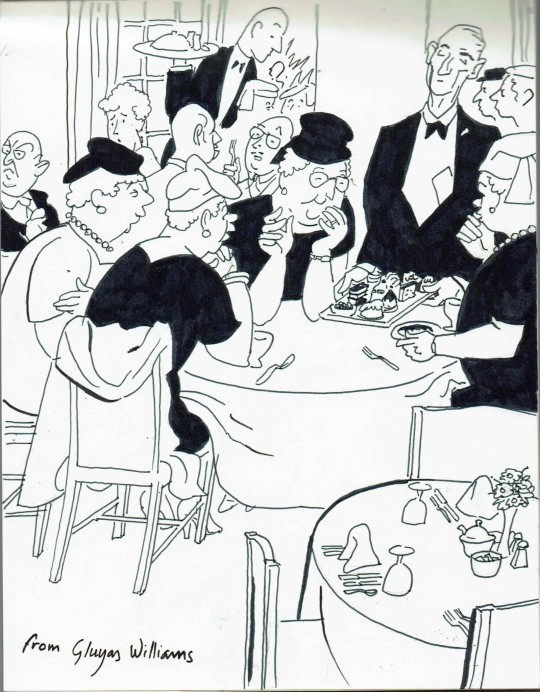
This is a drawing tribute made from a magnificent illustration by Gluyas Williams, a fabulous artist who was noted for his contributions to The New Yorker, Boston Globe, Life, Collier's, Century and other magazines and newspapers. His drawings often dealt with prevailing themes of the time, reflecting a classic costumbrismo, depicting scenes from the upper-middle class of interwar North America. An admirer of Aubrey Beardsley, his black and white drawings are made with a delicate but firm line, supported by strategically arranged black masses, which give the scene that precise balance. My drawing is made with pencil and markers as almost always. #theydiditbefore #gluyaswilliams #tribute #illustrations #classicillustrators ‐--------‐--------‐--------‐----------------------‐--------‐-----------‐--------‐--------‐----------------------‐--------‐------------ Éste es un dibujo realizado a partir de una magnífica ilustración de Gluyas Williams, un fabuloso artista que destacó por sus contribuciones a The New Yorker, Boston Globe, Life, Collier's, Century y otras revistas y periódicos.
Sus dibujos, a menudo, trataban temas predominantes de la época, reflejando un costumbrismo clásico, retratando escenas de la sociedad medio-alta de la Norteamérica de entreguerras.
Admirador de Aubrey Beardsley, sus dibujos en blanco y negro están realizados con una delicada pero firme linea, apuntalada por masas negras estratégicamente dispuestas, que otorgan ese equilibrio preciso a la escena.
Mi dibujo está realizado con lápiz y rotuladores como casi siempre.
#elloslohicieronantes #gluyaswilliams #tributo #ilustraciones #ilustradores
17 notes
·
View notes
Text

Erika Mann and Annemarie Schwarzenbach, around 1930/31
Annemarie Schwarzenberg was a Swiss journalist, writer, photographer and world traveller. In the early 1930s she had a brief affaire with Erika Mann.
Erika Julia Hedwig Mann (9 November 1905 – 27 August 1969) was a German actress and writer.
During World War II, Mann worked as a journalist in London, making radio broadcasts, in German, for the BBC throughout the Blitz and the Battle of Britain. After D-Day, she became a war correspondent attached to the Allied forces advancing across Europe. Via W

Female war correspondents during World War II.jpg. (Left to right):
Ruth Cowan, Associated Press
Sonia Tomara, New York Herald Tribune
Rosette Hargrove, Newspaper Enterprise Association
Betty Knox, London Evening Standard
Iris Carpenter, Boston Globe
Erika Mann, Liberty magazine. Via W
5 notes
·
View notes
Photo

Photo by Matthew Asner:
“First day of school in 9th grade. I am nervous as hell because it is my first day of high school and it’s all new. I walk into my Social Studies Class and am greeted by the teacher who just happens to be Peter Tork of The Monkees. A guy I watched goofing around on TV religiously as a child was teaching me about the world. He was a tough teacher. We had a thing in his class where he would always think that I wasn’t paying attention. He would always make a point of stopping what he was teaching and say to me, ‘What did I just say`’ I would always answer him correctly and it always seemed to frustrate him. He was very smart and loved to read from Mao’s Little Red Book. I was truly happy for him when The Monkees started touring and he found success again. I took this picture in our schoolyard at New Dimensions High School.” - Matthew Asner (Ed Asner’s son), Facebook, July 1, 2023
“Since September he has been teaching English, math, drama, Eastern philosophy and ‘Rock Band Class’ at Pacific Hills, a private secondary school in Santa Monica, Calif. A college dropout, Peter got the job on the strength of his interview with Dr. Penrod Moss, the school’s director. ‘I like to hire people who are independent and creative,’ Moss said. ‘I was impressed by his personality and his ability to speak.’ […] While Tork the musician still has dreams of one day returning to the rock circuit, Thorkelson the teacher is happily planning his next course, ‘Mao, Marx and Mama.’ ‘I’m doing something important,’ he says. ‘I never do anything less than important.’” - People magazine, April 5, 1976
“For some time, [Tork] said, the students in his high school classes had trouble forgetting their teacher was once a teen idol. ‘Until I gave out a few F’s,’ he added, grinning.” - The Clarion Ledger, November 1, 1979 (x)
“I was a schoolteacher in Southern California, and I taught music as well as academics, and I really very much love to teach, and, and I think that if circumstances show me that I am not to entertain anymore or my entertaining career per se winds down, I would very, very much love to coach young entertainers.” - Peter Tork, Headquarters radio, September 1989
“[A]s a teacher, I realized that in order to teach something well you need to understand what your student is going through as they try to learn.” - Peter Tork, The Journal Times Online, August 12, 2005
On a 2018 blog post at the Monkees Live Almanac, one former student, Mark, commented:
“Best high school teacher I ever had […]. Tremendous empathy.” (x)
“I taught English and social studies. And sure, the kids probably saw me as a Monkee, but they got over that in a hurry. Once I lost my temper at the kids, they’d see I was just like all the others — and I probably lost my temper too many times, since I was in an angry state back then.
I have a life now, that’s the difference. I have a spiritual core. I’m not Shirley MacLaine but I believe in greater or lesser worlds and consciousness. Most people think of themselves as cut off from each other; others know there’s a connectedness that can be tapped into.” - Peter Tork, The Boston Globe, August 10, 1989
“In the mid-’70s, Tork got jobs teaching English, social studies and music at two private schools in the Los Angeles area. The first job, which he enjoyed, was at ‘a radical progressive school in Santa Monica.’ The second was at a school he describes as ‘a holding tank for budding fascists. I couldn’t hack it. I found more integrity in being a singing waiter’ — his next job.” - Los Angeles Times, October 20, 1992 (x)
More about that next job here.
#Peter Tork#Tork quotes#Tork teaching#70s Tork#<3#long read#Matthew Asner#1975#1976#1977#1978#1979#also always so much respect for Peter's unflinching honesty in interviews#this photo... thank you Matthew Asner thank you#The Clarion Ledger#Los Angeles Times#the boston globe#Headquarters Radio#can you queue it
123 notes
·
View notes
Text
Over 750 Journalists Sign Letter Protesting Coverage of Israel’s War on Gaza - Washington Post - Palestine Chronicle

The funeral of two Palestinian journalists killed by Israeli forces in Gaza. (Photo: Mahmoud Ajjour, The Palestine Chronicle)
https://www.palestinechronicle.com/over-750-journalists-sign-letter-protesting-coverage-of-israels-war-on-gaza-washington-post/
Over 750 journalists have signed an open letter published on Thursday condemning Israel’s killing of reporters in Gaza and slamming Western media’s coverage of the war, the Washington Post reported.
The letter, which includes signatories from Reuters, the Los Angeles Times, the Boston Globe and The Washington Post, states that newsrooms are “accountable for dehumanizing rhetoric that has served to justify ethnic cleansing of Palestinians”.
“For some of the journalists, signing the letter was a daring or even risky move,” The Washington Post said, adding:
“Reporters have been fired from some newsrooms for espousing public political stances that could open them to accusations of bias.”
“The journalists’ letter follows several other open letters in recent weeks, most expressing solidarity with Palestinians,” the Washington Post wrote, noting that a letter – signed by hundreds of Jewish writers and published in N+1 magazine read, “We are horrified to see the fight against antisemitism weaponized as a pretext for war crimes with stated genocidal intent.”
Much of the text of the letter “focuses on the journalists who have been killed in the month-long conflict”, The Washington Post said.
The Government Media Office in Gaza has reported the killing of 46 journalists since the beginning of the Israeli aggression on the Gaza Strip on October 7.
(The Palestine Chronicle)
"More than 750 journalists from news organizations including the Washington Post, the Los Angeles Times and the Guardian have signed a letter condemning Israel's “killing of journalists in Gaza” — as they urged outlets to use terms like “apartheid” and “genocide” in their reporting to describe the Jewish nation's"...1 day ago
NY Post
8 notes
·
View notes
Text
By: Mike Damiano and Hilary Burns
Published: Sept 20, 2023
Boston University announced Wednesday it would conduct an “inquiry” into Dr. Ibram X. Kendi’s Center for Antiracist Research after complaints emerged about the center’s culture and financial management.
The assessment comes the week after Kendi, a celebrity author, scholar of race, and antiracism advocate laid off more than half the center’s staff.
The complaints, a BU spokesperson said, “focused on the center’s culture and its grant management practices.” The inquiry announced Wednesday represents a broadening of a previous “examination” of the center’s grant management practices, according to the spokesperson, Rachel Lapal Cavallario.
Kendi “takes strong exception to the allegations made in recent complaints and media reports,” she said.
Since its announced launch in June 2020, just days after the murder of George Floyd in Minneapolis, the center has raised tens of millions of dollars from tech entrepreneurs, Boston-area corporations, and thousands of small donors.
At the time, Kendi, the author of the bestselling 2019 book “How to Be an Antiracist,” said the center would “solve these intractable racial problems of our time.”
The money was meant to finance a range of ambitious projects: a database to track racial disparities nationwide, a graduate degree program, a media enterprise, and research teams studying the effects of systemic racism on health and society.
Some of these projects have come to fruition, including The Emancipator, a digital publication launched with the Boston Globe’s opinion staff in 2021. The publication’s operations shifted to BU in March, although it continues to be hosted on the Globe’s website.
But others have not, including the Racial Data Tracker, which one former staffer described as a “centerpiece” of the organization’s goals.
Lapal Cavallario said Wednesday that the center “has been developing” the Racial Data Tracker. She referred follow-up questions to the center itself, which did not respond.
She also provided a list of the center’s achievements, including: funding for numerous research projects, collaboration in a project launched by journalists at the Atlantic magazine (where Kendi is a contributing writer) to track racial disparities in COVID data, and organizing two “policy convenings” on antibigotry and data collection related to race and ethnicity.
“Boston University and Dr. Kendi believe strongly in the center’s mission,” Lapal Cavallario said. “We look forward to working with him as we conduct our assessment.”
BU’s announcement of the inquiry came hours after the Globe sent the university extensive questions about the center’s operations.
In interviews with the Globe this week, current and former employees described a dysfunctional work environment that made it difficult to achieve the center’s lofty goals.
The organization “was just being mismanaged on a really fundamental level,” said Phillipe Copeland, a professor in BU’s School of Social Work who also worked for the center as assistant director of narrative.
Although most decision-making authority rested with Kendi, Copeland said he found it difficult to schedule meetings with him. Other staffers described paralysis in the organization because Kendi declined to delegate authority and was not often available.
Copeland resigned from the center in June.
Kendi has completed a number of personal projects since 2020, including a graphic novel focused on the history of racist ideas, a podcast called “Be Antiracist,” and a five-episode TV show scheduled to debut Wednesday on ESPN+.
In recent months, Kendi had been on leave from the center, according to BU.
He returned last week and, in a series of Zoom meetings, told approximately 20 of the center’s staffers that they would be laid off, according to Spencer Piston, a BU professor and leader in the center’s policy office.
The layoffs “were initiated by Dr. Kendi” and represented a strategic pivot, not a response to any financial difficulty, Lapal Cavallario said. The center will now pursue a fellowship model “rather than its current research-based approach,” she said.
The layoffs surprised some staffers.
“I don’t know where the money is,” said Saida Grundy, a BU professor who worked at the center from fall 2020 to spring 2021.
In December 2021, Grundy sent an email to BU provost Jean Morrison alleging dysfunction in the organization and a “pattern of amassing grants without any commitment to producing the research obligated” by them.
Lapal Cavallario said Wednesday that BU had “received some complaints from individuals questioning whether the center was following its funding guidelines. We are currently looking into those complaints.”
The center, she said, “would disagree with a characterization of it not having produced important work insofar as antiracism is concerned.”
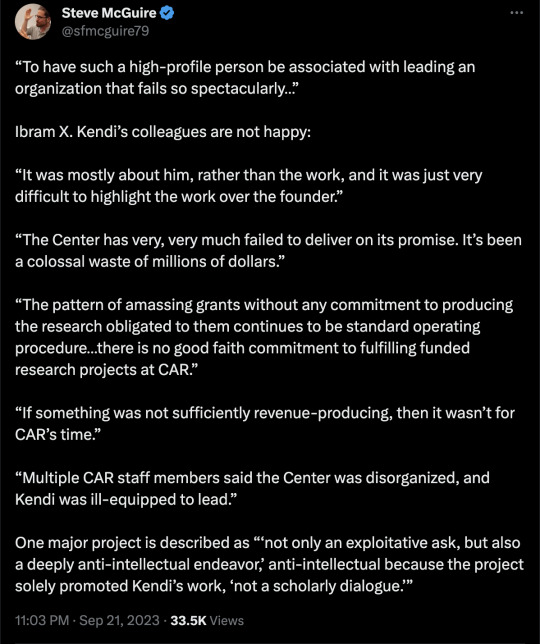
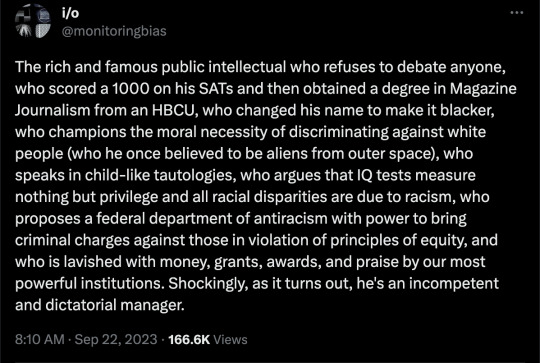
==

I'm reminded that they got Capone on tax evasion, rather than all the gangstering and murdering and such.
I would prefer that Kendi fall into disrepute through exposure, analysis and refutation of his fraudulent "scholarship," but a financial scandal will suffice.
#Ibram X. Kendi#Kendi is a racist#Boston University#Center for Antiracist Research#financial scams#financial scandal#academic fraud#religion is a mental illness
7 notes
·
View notes
Text
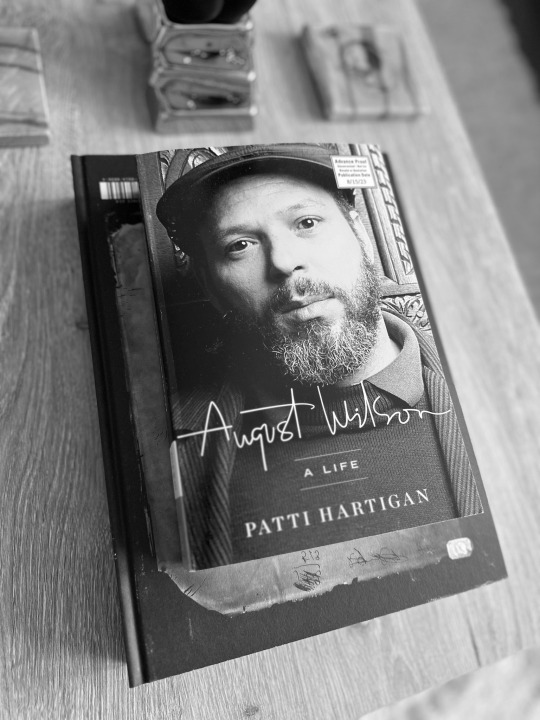
To celebrate this Juneteenth, I’m going to relax and enjoy reading ‘August Wilson: A Life’ - the first authoritative of August Wilson by theatre critic Patti Hartigan who knew him.
Thanks to Tyanni from Simon & Schuster @simonbooks who provided the advanced copy for me to enjoy.
Here’s what you can look forward to reading when the book is available August 15, 2023
The Blurb:
August Wilson wrote a series of ten plays examining African American life in the 20th century, one play for each decade. No other American playwright has completed such an ambitious oeuvre. Two of the plays became successful films, Fences, starring Denzel Washington and Viola Davis; and Ma Rainey’s Black Bottom, starring Viola Davis and Chadwick Boseman. Fences and The Piano Lesson won the Pulitzer Prize for Drama; Fences won the Tony Award for Best Play, and years after Wilson’s death in 2005, Jitney earned a Tony Award for Best Revival of a Play.
Through his brilliant use of vernacular speech, Wilson developed unforgettable characters who epitomized the trails and triumphs of the African American experience. He said that he didn’t research his plays but wrote from “the blood’s memory,” a sense of racial history that he believed African Americans shared. Author and theatre critic Patti Hartigan traced his ancestry back to slavery, and his plays echo with uncanny similarities to the history of his ancestors. She interviewed Wilson serval times before his death and traces his life from his childhood in Pittsburgh (where nine of the plays take place) to Broadway. She also interviewed scores of friends, theatre colleagues and family members l, and conducted extensive research to tell the story of a writer who left an indelible imprint on American theatre and opened the door for future playwrights of color.
Patti Hartigan is an award winning theatre critic and arts reporter who spent many years on the staff of The Boston Globe. She divides her time between Boston area and Charlottesville, VA. | Simon & Schuster Publishing.
CARTER™️ Magazine carter-mag.com #wherehistoryandhiphopmeet #historyandhiphop365 #cartermagazine #blackhistory #augustwilson #blackhistorymonth #staywoke
18 notes
·
View notes